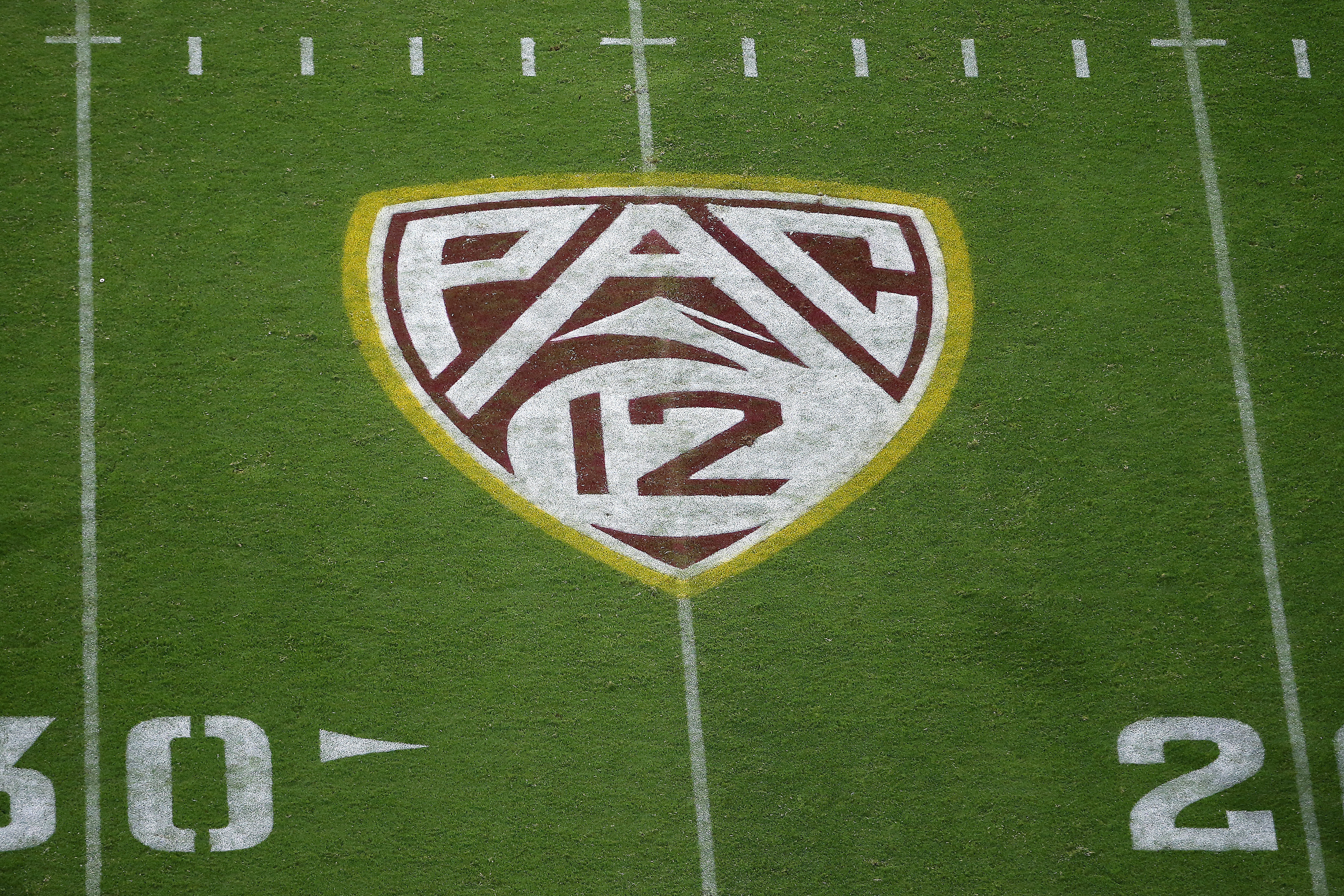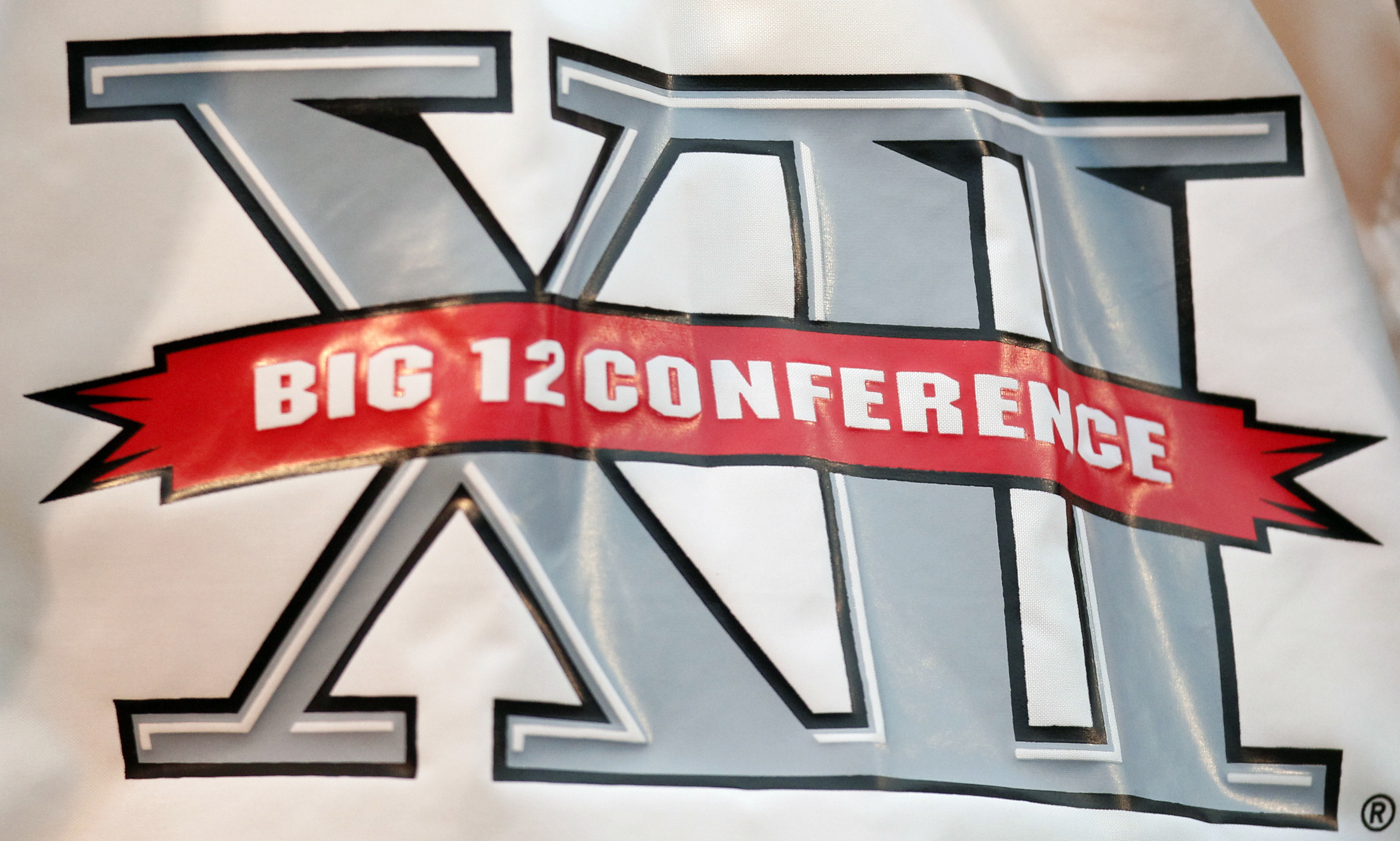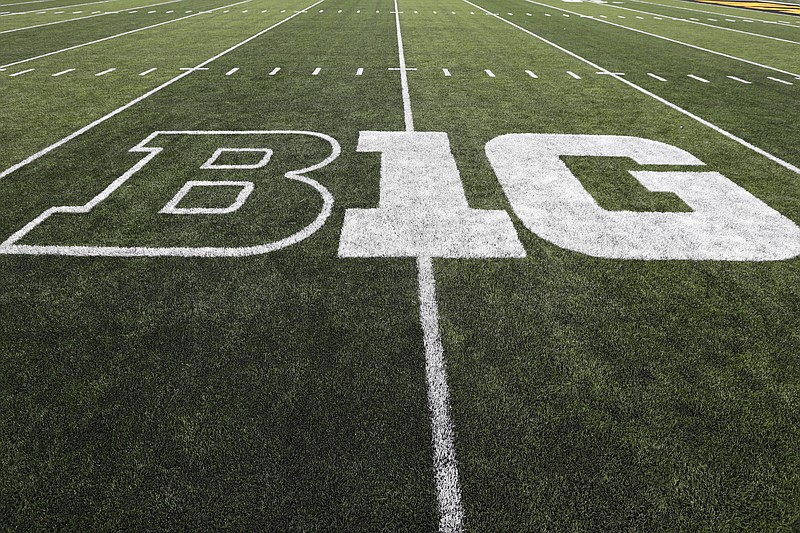Don't call it conference realignment. Call it college football consolidation. Recent history suggests few are safe from being the next to get squeezed out.
And even if your school makes the cut it can come with a cost.
What was once a Big Six in major college football conferences became a Power Five and is now down to four after the Big 12 and Big Ten, motivated by a dwindling pool of television network dollars, carved up the Pac-12 over the course of about 36 hours last week.
The previous time college football lost a power conference was right before the Bowl Championship Series was transformed into the College Football Playoff in 2014.
Don't think it is a coincidence the latest hit came one year before the CFP -- and the revenue it creates -- expands.
"Once USC and UCLA went to the Big Ten [last year], I knew this was all going to happen," former Big East Commissioner Mike Tranghese said. "We now have total chaos."
The Pac-whatever might survive, but it will never be the same.
Tranghese has been through this before. The Big East was a so-called BCS conference back in the day, and the first deemed dispensable. The Atlantic Coast Conference did the majority of the damage over a span of about a decade, starting with poaching Miami, Boston College and Virginia Tech in 2003.
"I held a press conference and I said my great fear is that people are going to look around and say we can do this," Tranghese told AP. "Here it is, some 20 years later and people are moving around like there's no hesitancy in moving. None whatsoever."
Tranghese kept the Big East afloat and relevant in football. Dismayed by the experience, he left the job and was not around when the ACC circled back to finish the job.
By the time the CFP was unveiled in 2014, the Big East was out of the football business. The American Athletic Conference was birthed from its remnants, quickly confined to the so-called Group of Five conferences and cordoned off from the largest piles of cash TV networks were willing to pay for top-tier college football.
Now the line is about to be redrawn. The TV networks have less money to go around, and have come to realize that paying for Washington State and Oregon State doesn't make sense when all they really want is Washington and Oregon.
"It's interesting that the Big Ten and the SEC have separated themselves, and now it's the race to who's going to be third," said Karl Benson, who oversaw the Western Athletic Conference as it was torn apart by realignment in the late 1990s and 2000s.
The Big 12 was a winner in this round of realignment, but what about next time? It's already apparent the next match of this survivor series will pit it against the ACC, where Florida State is telling everyone it's not happy.
The ACC's contractual obligations seem to be the only thing keeping it from being raided. If deals don't hold, everything about the trajectory of college sports over the past decade points toward the SEC and Big Ten stripping the most valuable parts of the ACC and the Big 12 picking through the leftovers.
But why stop there?
At what point do networks decide they're done paying for Purdue and Indiana to get Ohio State and Michigan in the Big Ten? When do Georgia and Alabama look across the table during an SEC meeting at Missouri and Mississippi State and ask, "What would you say you do here?"
Where is the NCAA in all this? Lobbying Congress for laws to rein in how college athletes can earn money from their fame. Athletes cashing in and having more freedom than ever to choose where they play has literally become a federal issue.
Missouri football Coach Eli Drinkwitz pointed out the hypocrisy over the weekend.
"I thought the transfer window, I thought the portal was closed," he said a day after five Pac-12 schools announced they were leaving next year. "Oh, that's just for the student-athletes. The adults in the room get to do whatever they want, apparently."
For the sake of better football matchups and the money they generate, scores of athletes at those new West Coast Big Ten schools will now be making regular cross-country trips to play sports that get a fraction -- if that -- of the attention of football.
"Traveling in those baseball, softball games, those people, they travel commercial, they get done playing, they got to go to the airport. They come back, it's 3 or 4 in the morning, they got to go to class. I mean, did we ask any of them?" Drinkwitz said.
He makes good points, but it is difficult for anyone who makes a living off college sports to grab the moral high ground. Missouri abandoned the Big 12 for the bigger money and prestige of the SEC 11 years ago. Drinkwitz's latest contract extension will pay him $6 million in 2023. He is 17-19 leading the Tigers.
The SEC and Commissioner Greg Sankey have only observed the Pac-12's demise over the past 14 months, lamenting the potential damage and publicly encouraging peace -- while also having tipped the first domino by taking Texas and Oklahoma away from the Big 12. The two storied programs arrive next year.
How college sports got here is nobody's fault because it's everybody's fault.
 FILE - The Pac-12 logo is shown at Sun Devil Stadium during the second half of an NCAA college football game between Arizona State and Kent State in Tempe, Ariz., Aug. 29, 2019. Colorado is leaving the Pac-12 to return to the conference the Buffaloes jilted a dozen years ago, and the Big 12 celebrated the reunion with a two-word statement released through Commissioner Brett Yomark: "Theyre back." (AP Photo/Ralph Freso, File)
FILE - The Pac-12 logo is shown at Sun Devil Stadium during the second half of an NCAA college football game between Arizona State and Kent State in Tempe, Ariz., Aug. 29, 2019. Colorado is leaving the Pac-12 to return to the conference the Buffaloes jilted a dozen years ago, and the Big 12 celebrated the reunion with a two-word statement released through Commissioner Brett Yomark: "Theyre back." (AP Photo/Ralph Freso, File) FILE - The Big 12 Conference logo is seen during the first quarter of an NCAA college football game between Missouri and Western Illinois, Sept. 17, 2011, in Columbia, Mo. Colorado is leaving the Pac-12 to return to the conference the Buffaloes jilted a dozen years ago, and the Big 12 celebrated the reunion with a two-word statement released through Commissioner Brett Yomark: "Theyre back." (AP Photo/Jeff Roberson, File)
FILE - The Big 12 Conference logo is seen during the first quarter of an NCAA college football game between Missouri and Western Illinois, Sept. 17, 2011, in Columbia, Mo. Colorado is leaving the Pac-12 to return to the conference the Buffaloes jilted a dozen years ago, and the Big 12 celebrated the reunion with a two-word statement released through Commissioner Brett Yomark: "Theyre back." (AP Photo/Jeff Roberson, File)
